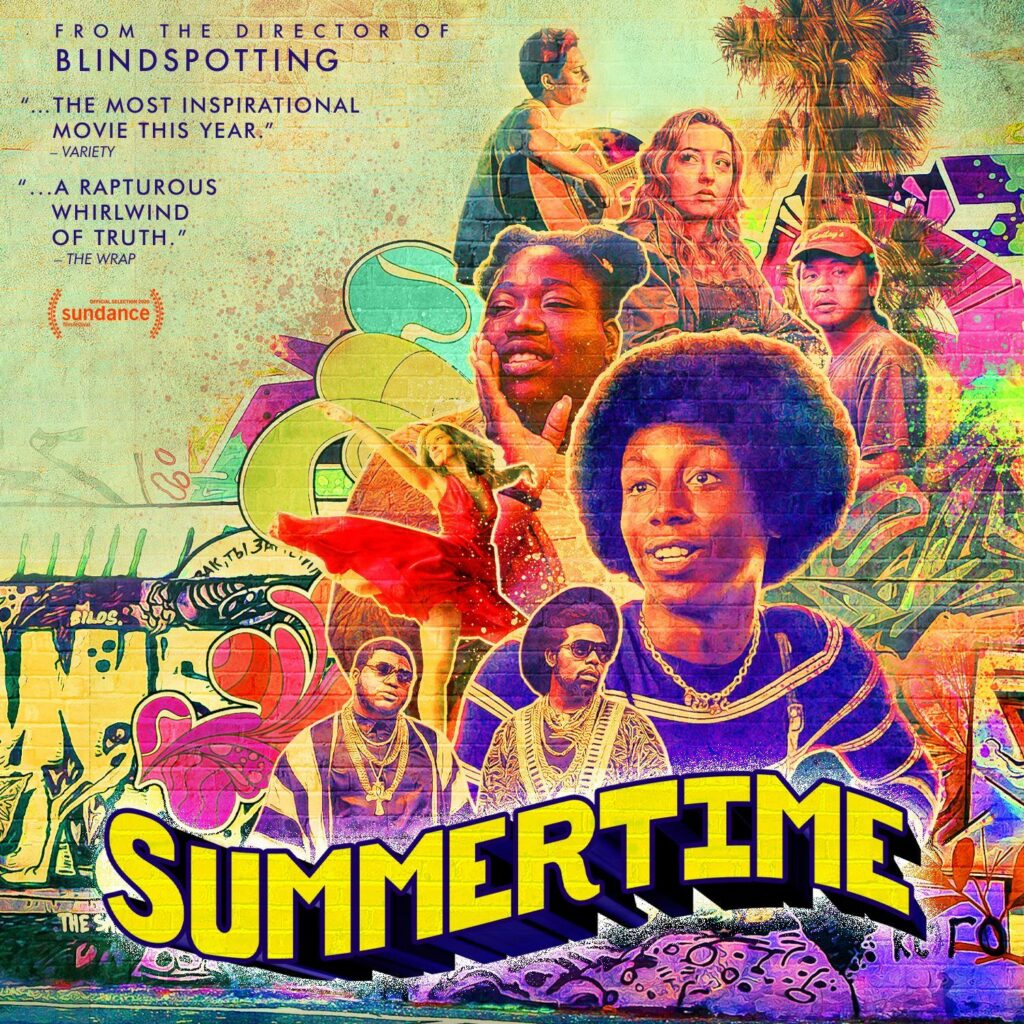Photo courtesy of Good Deed Entertainment
“And you’ll say it’s because I was raised the ‘Asian way’, well you’re dead wrong. It’s because I studied instead of sleeping, my parent’s palms they kept on bleeding, just so I could keep on eating and I still ended here cleaning!” Gordon Ip slams his hands on the counter of the burger joint counter he manages, emphasizing the last few words so they ring out into the silence. Ip’s poem comes near the end of “Summertime”, a cathartic piece that touches on being the child of immigrants, the systemic racism still present in today’s society, and the woes of working in the service industry where customers tend to think you’re less than human. “I approached [the poem] from the idea of working class Asian-Americans and how we’re shown in the media,” Ip explained when asked where the inspiration for his poem, “Smiley’s” came from. “[Asians] haven’t been shown in the media up until recently and I wanted to show the struggles that I have lived through, my parents have lived through, and their parents have lived through. I just wanted to show a small slice of what it’s like to be an immigrant.”
Ip’s poem is one of many that tells the story of “Summertime”, a film by Carlos López Estrada. Estrada, director of “Blindspotting”, worked with Get Lit, a nonprofit organization based in LA whose mission is “to increase teen literacy on the page and visual media.” The company hosts multiple classes, workshops and competitions to encourage youth to reach their full potential as creators and writers and has recently worked with the likes of Prince Harry and Megan Markle. “Summertime’s” plot is driven by the twenty-five poets who spilled themselves onto pages which were woven into a story with multiple characters throughout the film. Many of the poets play a version of themselves, which gives a feeling of authenticity that many films lack.
The cinematography captures everything from dazzling shots of Venice Beach, perfectly accompanied by Olympia Miccio’s stunning vocals, to the street art that makes LA the undulating art piece that it is. LA locals and Southern California junkies alike will find this love letter to the city of angels full of nostalgia, beauty and life.
Estrada and his team worked with the poets to create a storyline for each of their characters that worked with the rest. Raul Herrera, a teacher for Get Lit and the limo driver in “Summertime”, explained that Estrada asked each poet to write a scene around the poem that was going to be featured in the film. “These scenes weren’t necessarily the final version in the film, but [it gave Carlos] a good sense of the story that we want[ed] to tell,” Herrera said. Herrera’s poem, “Clouds” concludes the film with a beautiful view of LA at night while he discusses the illusion of time saying, “you are more powerful than time” and “love is an art, only learned by the lessons of pain.”
“Summertime” will give you goosebumps and eyes full of tears, and will make you leave yearning for something more. Poems like Marquesha Baber’s “Shallow” will rock you to your core while she spits years of repressed emotions into the face of the man who caused her third suicide attempt. Based on a true experience, Baber’s poem does not hold back, “‘Shallow’ is a real experience I went through but I never got the closure I needed to close that chapter in my life, so being able to accomplish that healing through the movie was truly a blessing,” Baber shared.
Each piece is raw with emotion and holds the spotlight with grace and ease. Poems like “Hey, I’m, Gay” will bring a smile to your face with lines like “I’m gay as a wool flannel on a summer day”, while pieces like “Home” will make you itch to write your own poetry with words like “chocolate couches and peeling paint.” Filled with beautiful inspiration, “Summertime” is sure to make you a poet.
“Summertime” will begin streaming on April 25th. Head to ashlandfilm.org to purchase tickets!



